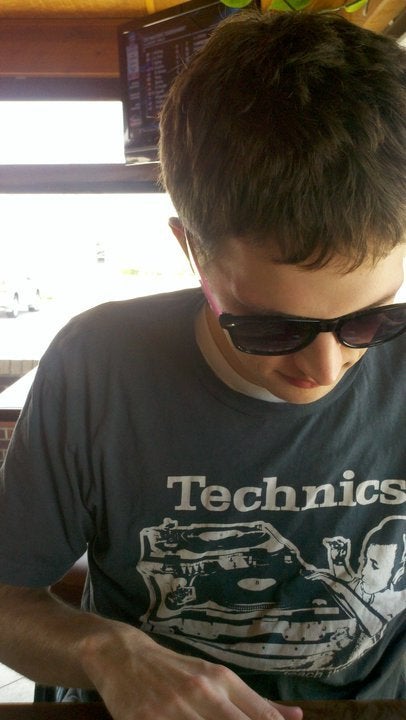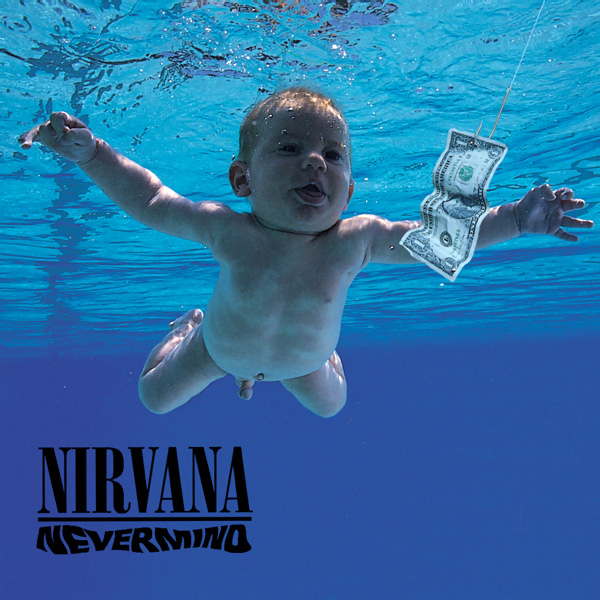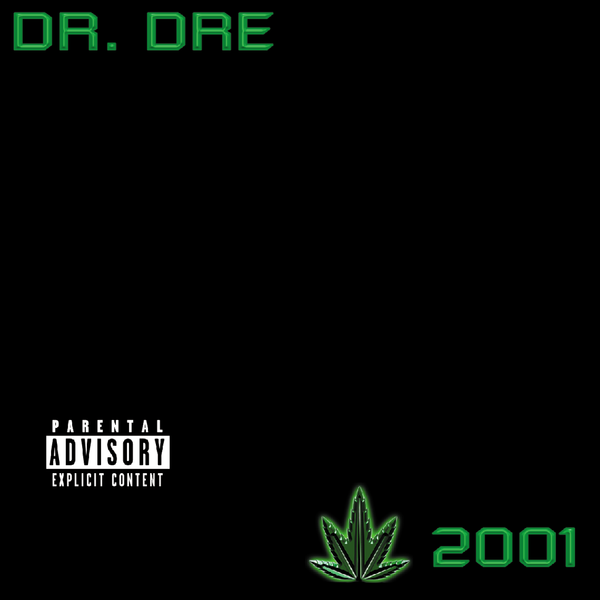
As indie darlings The xx gear up for their second album, Coexist, they’ve dropped off a solid array of singles that have been, for the most part, favorably received. With each leak, the pressure wanes slightly (as it becomes evident that the album may in fact live up to expectations) and rises (as expectations increase, often to impossible heights). All that got us thinking: making a second album is hard, especially if people loved your first release.
Dealing with the hopes of fans, artistic desires, critical reactions, and marketing potential can cripple creativity and crush an album’s chances before it even sees the light of day. These same forces can also elevate an artist to craft something new and memorable. Then, of course, there are those unburdened by the weight of public memory–artists whose debuts slipped quietly under the radar, buzzing enough to keep an artist moving, but never enough to paint an immovable picture.
So here’s a toast to breaking the sophomore slump, whether fueled by doubters, motivated by prior success, or liberated by near-anonymity. Check out 20 artists who put their best foot forward with their second album.
Hit “next” or click the pictures to read on…
Related: The Best Songs of 2014 (So Far)
Related: The Best Albums of 2014 (So Far)
Beastie Boys – Paul’s Boutique (1989)
After 1986’s Licensed to Ill set the Beastie Boys up as hip-hop’s hard rocking party boys, the trio decided to completely subvert expectations. Relocating from New York to Los Angeles and uniting with duo the Dust Brothers to create Paul’s Boutique, a record that would simultaneously set new standards for sampling in hip-hop (with a massive collage of funk and jazz that could only exist in a world before artists realized copyright claims could make for profitable lawsuits) and confuse fans. Years later, Paul’s Boutique would be reappraised as a paragon of production and old-school rhyming.
Nirvana – Nevermind (1991)
There were never huge expectations for Nevermind. That changed once the angst-filled ’90s youth got their hands on the first single, “Smells Like Teen Spirit.” With their second studio album, Nirvana sought to break out of the Seattle scene and do something bigger—they couldn’t have had a clue that they’d end up making one of the defining albums of a decade. The success brought a lot of drama, and Nirvana even poked fun of themselves post-Nevermind, labeling themselves “corporate rock whores,” and all but disowning “Smells Like Teen Spirit.” But Nirvana always managed to balance the punk rock mindset with the pitfalls of mainstream success, and their second album will forever stand as the soundtrack to a very specific moment in culture.
A Tribe Called Quest – Low End Theory (1991)
Hip-hop had made use of jazz and bass throughout the decade preceding A Tribe Called Quest’s second album; few artists presented low end as a reason for existence or recruited one of jazz’s most celebrated bassists–Ron Carter–to make their point clear. Such was the attention to detail on Tribe’s Low End Theory, a tour-de-force that solidified the group’s place at the forefront of inventive production and rhyming. Atop all that, Low End Theory announced a young Busta Rhymes as rap’s resident force of nature on the record’s most enduring single “Scenario.”
GZA – Liquid Swords (1995)
After the Wu-Tang Clan struck grimy pay dirt with its debut Enter the 36 Chambers, the original hip-hop super group trotted out its first spate of solo releases. GZA’s Liquid Swords is often cited as the pinnacle of the Wu’s solo endeavors, a grim affair that practically introduced “cinematic” into hip-hop’s journalistic lexicon with its array of movie-score beats and dark depictions of the drug trade. Liquid Swords shone so brightly that it eclipsed most recollections of GZA’s Big Daddy Kane-aping debut album, Words From the Genius.
Mobb Deep – The Infamous (1995)
In the wake of their mostly forgettable debut album Juvenile Hell, Mobb Deep crafted a work that would serve as a defining moment in hardcore hip-hop. Serving up a healthy dose of nihilism against a set of thunderously sparse backdrops, Prodigy and Havoc crafted a set of songs both hauntingly detached and frighteningly personal–a career defining turn that would prove difficult to top (though their third album Hell on Earth would come close, faltering only, perhaps, because it repeated The Infamous‘s formula without substantially building on it).
Neutral Milk Hotel – In the Aeroplane Over the Sea (1998)
There is not another album on the planet quite like In the Aeroplane Over the Sea. It’s one of those albums that seems even more dear to listeners’ hearts given the context. Neutral Milk Hotel put out arguably one of the best indie rock albums of all time and then disappeared. Jeff Mangum pops up from time to time, but mostly stays secluded and uninterested in the spotlight.
When Pitchfork asked Jeff if he’d make another NMH album he explained, “I don’t know. It would be nice, but sometimes I kind of doubt it. I just feel like these windows open up for something to be honest, and they don’t stay open for very long. I guess my path feels sort of different now… I don’t know what’s going to happen.” That’s okay, Jeff—when you make an album this good, you’ve earned a rest-of-your-life vacation from the studio, if that’s what you want.
The Fugees – The Score (1996)
The Fugees debut album, Blunted on Reality, is notable for the minor hit “Nappy Heads.” The Fugees’ second album, The Score is notable for launching three successful solo careers, a slew of hits (including an iconic cover of Roberta Flack’s “Killing Me Softly”), and selling nearly fifteen million units worldwide. On The Score, Wyclef Jean, Lauryn Hill, and Pras Michael scoffed at sophomore jinxes both critically and commercially, while simultaneously setting the blueprint that would carry each member to individual accolades (though, admittedly, Wyclef and Lauryn have held a bit more of the public eye than Pras since the group dissolved).
Outkast – Atliens (1996)
Carrying the torch for southern hip-hop was no mean feat in the largely bi-coastal scheme that dominated hip-hop throughout the early 90s, but Outkast bore the weight deftly with their stellar debut Southernplayalisticadillacmuzik. As fans and critics alike would discover over the next decade and a half, Outkast would never be a group satisfied to stand on ceremony. Eschewing the booming bass and southern funk of Southernplayalistic, Outkast created the eclectic, career defining Atliens, a melancholic meditation on stardom, street life, and everything in between that would predict the stylistic explorations of later albums while solidifying the duo of Big Boi and Andre as master craftsmen capable of tinkering with their formula and coming out better for it (in spite of inspiring confusion with their almost complete reinvention). Atliens remains a hallmark of southern hip-hop whose reverberations deeply influenced artists as varied as the Cunninlynguists and Big K.R.I.T.
Dr. Dre – 2001 (1999)
Though it is difficult to pick favorites between Dr. Dre’s two towering solo albums, the influence of 2001 continues to shape hip-hop from the underground to the heights of the mainstream, the era-opening salvo like few others in its genre. Arriving seven years after his debut The Chronic–an unthinkable hiatus in hip-hop–Dre’s 2001 shattered expectations, a new life for its creator as booming-voiced rap elder statesman and cutting edge producer. The beats, in particular, elevate 2001 to the height of Dre’s catalog (as a solo artist and producer for others), a set of clean, orchestral, booming productions that took the hallmarks of gangsta rap and gave them a 21st century sheen on the doorstep of a new millennium Dre would come to dominate.
Eminem – The Marshall Mathers LP (2000)
On his commercial debut, The Slim Shady LP (for the sake of argument: Infinite had zero distribution and would probably be considered a mixtape if it came out today), Eminem projected himself as a drug addled, battle rapping trickster, occasionally flashing psychological darkness between expertly constructed punchlines. The Marshall Mathers LP painted a thick layer of grime on already black humor, showcasing a songwriter at the height of his craft delving into the depths of his mind, turning personal turmoil into an arresting statement about a man and the world swirling around him. Violent, frightening, amoral, and often all the more poignant for it, The Marshall Mathers LP is notable for its craft and the conflicts that surrounded its content. Though often difficult to digest, Eminem’s second album paints as uncompromising and enthralling a portrait of post-Columbine America as any album since.
Ghostface Killah – Supreme Clientele (2000)
By 2000, the once bright star of the Wu-Tang empire appeared on the decline. In the three years since the bloated, but mostly strong Wu-Tang Forever, a number of Clansmen managed to release underwhelming, overhyped solo albums–notably followups to certified classics by Raekwon (Immobilarity) and GZA (Beneath the Surface). As the crew’s luster faded, Ghostface crept out of the shadows with Supreme Clientele, a record that reshaped his sound (and much of the Wu’s sound to come) and set the table for a style that would propel him to the head of the Clan’s class in the minds of fans and critics. Over a bevy of rich soul samples, Ghostface dialed back the energy that had been his youthful trademark and rolled out the idiosyncratic stream of consciousness that sprinkled stories about girls playing double dutch next to food references and intricate recreations of drug deals. Clientele remains not only the strongest statement from an impressive solo career, but also perhaps the far and away best album from the Wu’s post-Forever wave.
Daft Punk – Discovery (2001)
Even in the slightly more patient late 90s, four years between a debut album and its followup felt an interminable intermission–particularly when that debut is as catchy and memorable as Daft Punk’s Homework. In 2001, Daft Punk took the disco and house influences that guided their early work and unleashed Discovery, a testament to polished production that never loses its heart or roots while simultaneously shaping the scene around it. Discovery is perhaps the ultimate testament to the duo of Guy-Manuel de Homem-Christo and Thomas Bangalter as not only producers, but curators of danceable sounds, serving up a feast of samples and textures without ever losing dedication to hooky memorability and the ultimate guiding mission: making people shake their asses into the wee hours of the night.
The Shins – Chutes Too Narrow (2003)
The Shins have always kept things simple. On Chutes Too Narrow, they didn’t need to stray from what they started with Oh, Inverted World. The band kept it short and sweet but made melodies that still dance around in our heads nine years later. While so many other albums get stuck sounding like remnants of a time or phase that has come and gone, The Shins’ Chutes Too Narrow remains a timelessly good staple for any indie rock fan.
Kanye West – Late Registration (2005)
After successfully navigating the treacherous transition from superstar producer to superstar producer and rapper, Kanye West set his sights on the mission that has since consumed him: becoming a superstar artist. Enlisting the help of Fiona Apple producer Jon Brion as well as an eclectic cast of guests (Adam Levine of Maroon 5, Paul Wall, Common, the Game, Nas, Cam’ron at his goofily brilliant peak, a young rapper named Lupe Fiasco, and big brother Jay-Z), West elevated his sound to often symphonic heights, largely jettisoning the chipmunk soul that had become his stock in trade for a lush sound all his own. Late Registration represents one of Kanye’s most diverse statements, bouncing from confidence to defeat (often within songs and even verses) across a set of dazzling, singular productions.
Amy Winehouse – Back to Black (2006)
Before the revivalist soul brigade that sported singers like Duffy, Joss Stone, and the inescapable Adele, Amy Winehouse released Back to Black, an album spawning unexpected hits about alcoholism and abusive relationships delivered by an indelible voice. Over Mark Ronson and Salaam Remi’s brigade of rich productions–sprinkled with Motown, girl group soul, and a dose of hip-hop–Winehouse bared her soul an a fashion largely alien to modern r n’ b. Though Winehouse’s debut Frank laid the foundation for the singer’s honesty and powerful performances, Back to Black peeled back the curtain on a soul more tortured than an unknowing populace could know at the time of its release. As the last full length album of Winehouse’s tragically short life, Back to Black stands as a testament to potential realized while leaving room to imagine what could have been as Winehouse continued to develop.
Clipse – Hell Hath No Fury (2006)
In 2002, Virginia duo Clipse announced themselves with “Grindin’,” the skeletal, idiosyncratic trunk-rattler that solidified the Neptunes as one of hip-hop’s most adventurous production duos. Though the rest of Clipse’s debut Lord Willin’ made for quality listening, it strayed from “Grindin'” and hewed closely to the Neptunes signature synth sound. Clipse’s oft-delayed Hell Hath No Fury arrived as if “Grindin'” had been a thesis, a sonic foundation guiding one of the most bizarre listens in mainstream hip-hop. Over twelve songs, the Neptunes pushed the boundaries of their sonic palette while Pusha and Malice brought spite, humor, and humanity to their coke kingpin raps–elevating a rote rap topic to a cautionary drama on par with Hollywood’s best attempts at exposing the intricacies of the drug trade.
TV on the Radio – Return To Cookie Mountain (2006)
After becoming somewhat of an indie darling with their debut, TV on the Radio was set up for one of the typical pitfalls of the sophomore slump. They could have easily toned down the weirdness in favor of something more accessible. Instead, they turned up their accessibility and kept all their trademark experimentation with Return To Cookie Mountain. While some may argue that Dear Science stands at the band’s best work, their second album was their most important, setting them on a path of creative freedom instead of mass appeal-inspired complacency.
LCD Soundsystem – Sound of Silver (2007)
James Murphy could write a book on how to age gracefully as a hipster. Instead of trying to maintain his cool, James got more real, outlining that bittersweet feeling of celebrating good times of the past and coming to grips with the fact that times have changed. While trends come and go, the feelings conveyed by Sound of Silver stay forever relevant, and while “timeless” is a weird term to connect to something so hip, this album managed to pull off that hard-to-find balance. Even harder to imagine? “All My Friends” ever getting old.
15 THINGS YOU DIDN’T KNOW ABOUT LCD SOUNDSYSTEM
Adele – 21 (2011)
Though Adele’s debut album 1921. Sharpening her retro-soul sound with the help of producer Paul Epworth and a particularly nasty break up, Adele’s 21 provided a more evocative, concentrated take on the elements that marked Adele’s rise to prominence, injecting a dose of maturity and feel-it-through-the-speakers emotion to a voice already notable for its range and power. A little more than a year and a half after its release, 21 remains a commercial powerhouse, approaching 22 million records sold worldwide.
Drake – Take Care (2011)
With 2010’s solid but occasionally disjointed Thank Me Later solidifying Drake’s position as an ascendant star in realms of pop and hip-hop, the Young Money rapper and his trusty producer sidekick Noah “40” Shebib dove into the studio to craft a cohesive follow up. In the process, they created the purest distillation of Drake’s style to date, an album that alternates between chamber rap-n-b, stadium-ready hip-hop, pop with surprising grace. Though unlikely to win converts, Take Care represents the impressive focusing of a young artist, trying new things and polishing what already worked.
Related: The Best Songs of 2014 (So Far)
Related: The Best Albums of 2014 (So Far)









